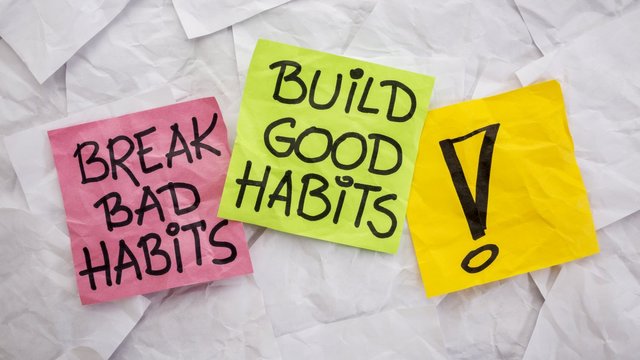Developing good habits can help you achieve your goals and improve your overall health. But, it takes time and effort to build new habits.
To start, choose a small goal that is specific, measurable, action oriented, realistic and time bound (SMART). Once the behavior becomes habitual, you can set a larger one.
Creating good habits can be tough. But it’s a necessary part of a healthy lifestyle.
Habits are repeatable, repetitive behaviors that are built into our routines. They help us achieve our goals and build a healthy life.
Bad habits, on the other hand, can be detrimental to our health and well-being. They can also impede our personal development and interfere with our relationships.
One of the key things to do when trying to create good habits is to set small, reasonable goals and take action on them. It’s much easier to achieve a goal that is attainable than a large, impossible-to-attain goal.
One of the simplest and most effective ways to create good habits is to make it easy. That may mean finding a convenient way to perform the new behavior, or creating a cue that will remind you of your goal each and every time.
You’ll also want to consider how the habit will be rewarded. Research has shown that a reward that’s immediate and simple is more likely to stick than something that requires a few days of thought or planning.
One of the most important steps to creating good habits is making it a reward. It’s a simple but powerful method that can help you achieve transformation.
The first step is identifying a cue that will initiate your new routine and the reward you want to use for it. The cue should be something that is relevant and helpful to you.
A new habit is a routine that is repeated regularly, so it becomes automatic. For example, brushing your teeth, drinking a cup of coffee or taking a walk after dinner are all habits.
If you want to form a new habit, you need to create a cue, routine and reward for it. This will help you understand how it operates, so you can gain control over it.
You also need to plan how to deal with failure when it happens, which is a major barrier for many people trying to develop a good habit. Developing a plan with small successes and steps to recover from setbacks will make it easier for you to stick to your goals.
One of the most important steps to creating good habits is to make them a routine. Routines help you stick to your goals and achieve them more easily because they become automatic and effortless, removing the need for willpower.
But it's important to note that establishing new habits can take time. That's because it takes your brain time to adapt.
That's why it's important to pick a routine that fits your lifestyle and personality. This will make it easier to build healthy habits that you can continue for the rest of your life.
One of the most important steps to creating good habits is making them a reward. Rewards are a way to remind yourself that you are making progress towards your goals.
If you are trying to start a new exercise routine, for example, you could use a fitness tracker and wear it around your wrist when you reach milestones (like completing your first workout). This will reinforce the habit and keep it going.
This also works well for other types of new behavior changes, such as starting a business or making money. You may want to experiment with different rewards to see what works best for you.

